Japan's Amazing DIY Superstores: From Cheap Urban Farming to Building a Home
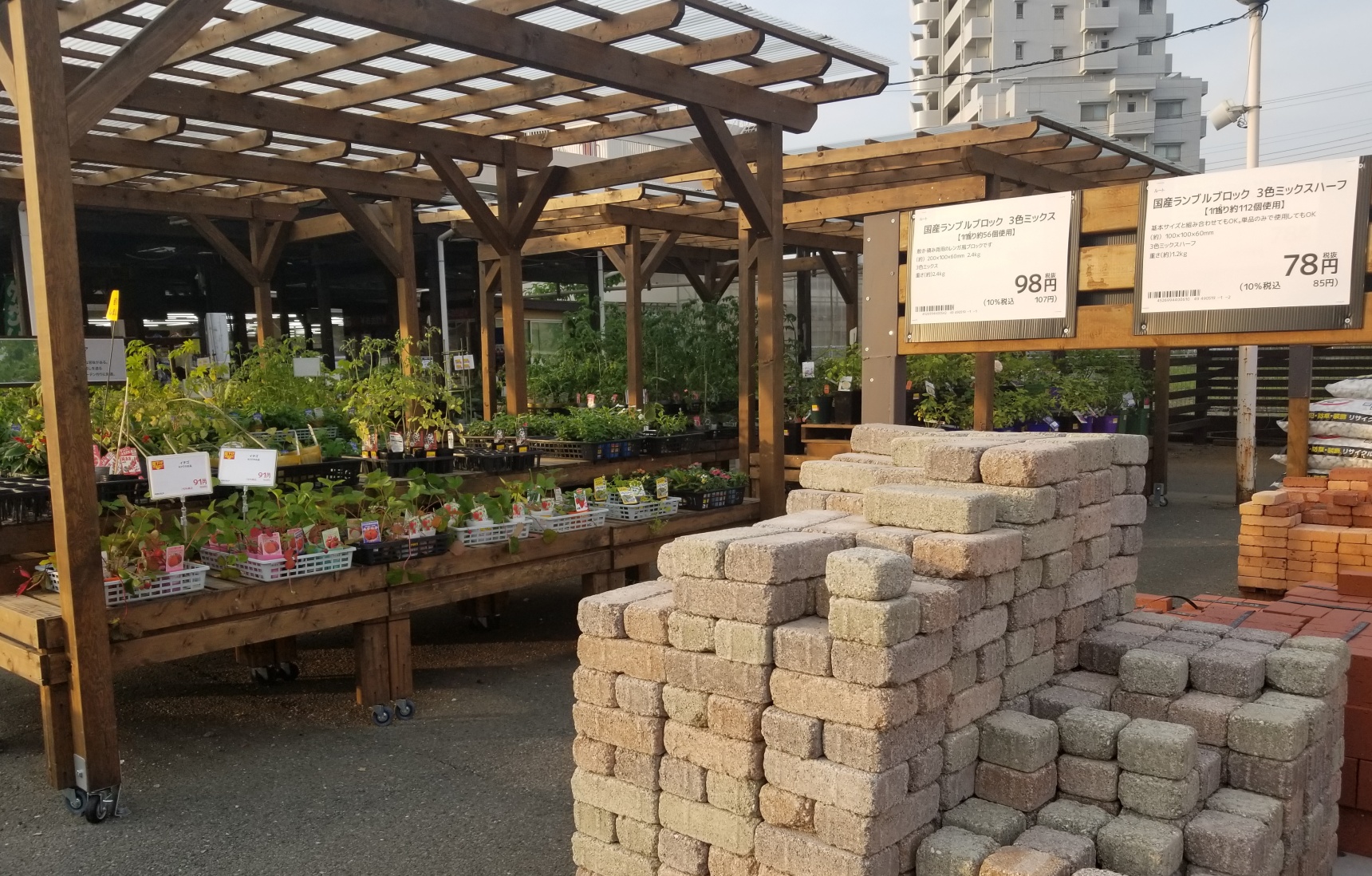
Home improvement and specialty stores have sprung up all over Japan to cater to the creative urge in all of us. From bread-making to home-gardening and more, Katrina Vinluan offers a comprehensive list of stores that are indispensable to DIYers.
By Katrina VinluanPart I: Growing Your Garden
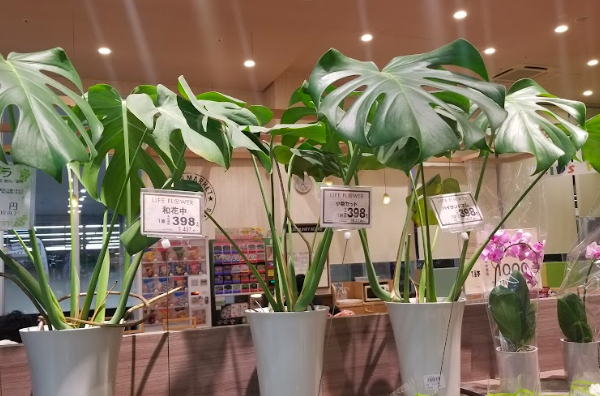
Super cheap Monstera and orchids, anyone? Available in LIFE Supermarket exclusive to Kohnan's premises.
It can seem like there's a small garden shop in every neighborhood in Japan, with a small collection of plants and seeds to help develop your green thumb. But if you think that's all that Japan has to offer the budding gardener, think again. Big box home improvement stores, which sell extensive garden paraphernalia, have sprung up all over the country, and are particularly huge in rural or suburban areas.
Kohnan: Heaven for the Plantsman
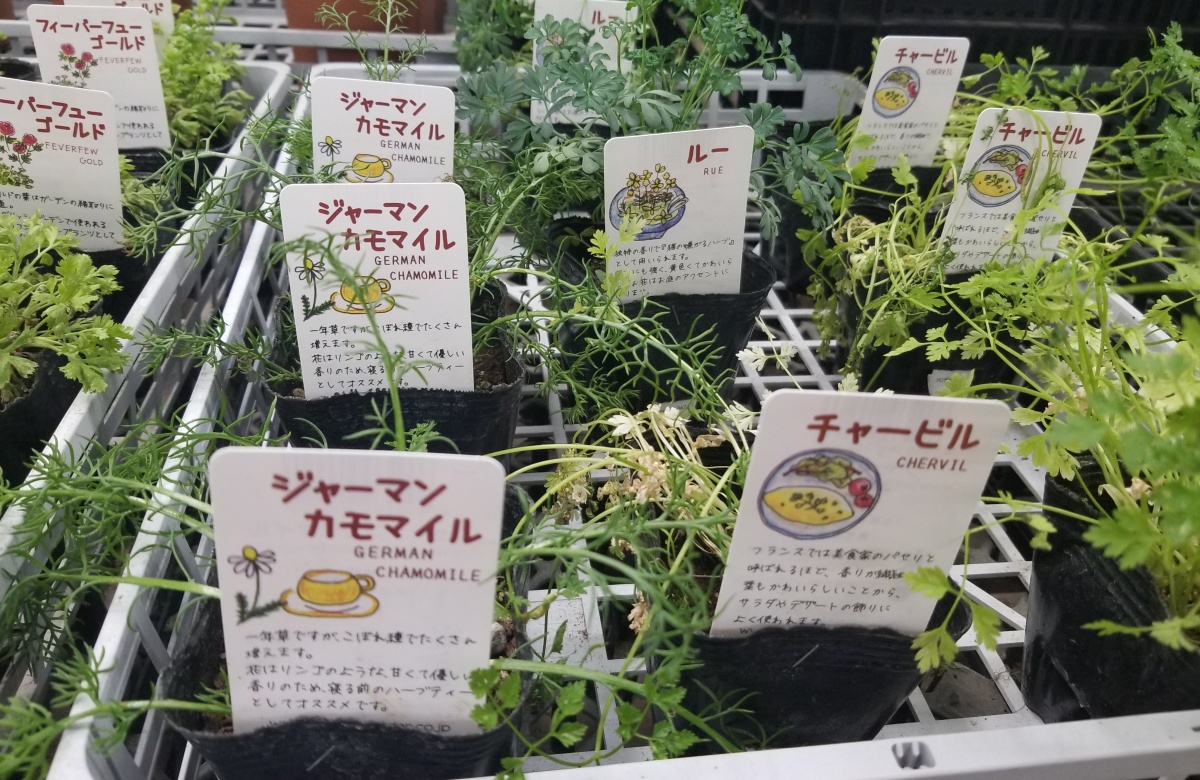
Herb plants sell cheaper than a packet of herbs in most supermarkets.
Kohnan is a one-stop shop for everything household. It's even usually strategically-located beside other shops with affordable supplies you'd need—LIFE Supermarket for low produce and meat, Nojima for appliances, and Seria good quality, 100-yen finds.
Kohnan prides itself in carrying a wide selection of tools and supplies for urban farming and beyond. From wood planks to metal wires, plastic frames, rubber mattings and more, they have them here. The shop carries an extensive selection of decorative and fruit-bearing plants, too, including all the care supplies such as snail traps and weed killers. One thing that stands out is the availability of affordable “branded” seedlings (ex. Del Monte tomatoes) and hard-to-find herbs for less than 300 yen, as well as really cheap and healthy-looking cuttings (ex. bamboo and snake plants), and cheap Monstera plants.
Shimachu: For Style and Savings
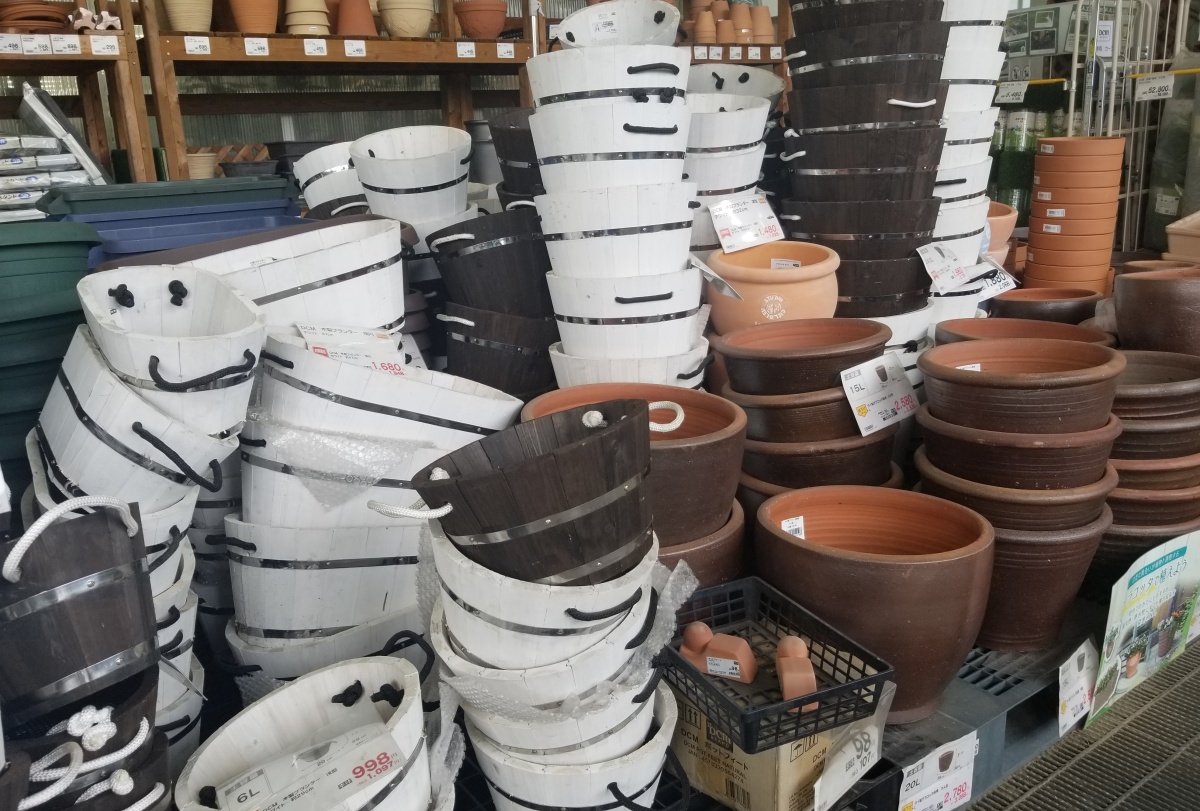
Shimachu runs both the Shimachu and Homes large home improvement outlets, and has a wide range of gardening accessories that are quite modern. Think black and white pots that match your sleek aesthetic. They not only have all the soil types and stones you'd need, but also ceramic decor to adorn your garden—from a realistic Golden Lab, to the elves of Snow White, to figurine animals to spruce up your garden.
The larger Homes stores have massive home materials sections, from all varieties of lumber to insulation to roofing, pretty much everything you'd need to build your own home!
DCM: Turning Gardens to Get-away Spots
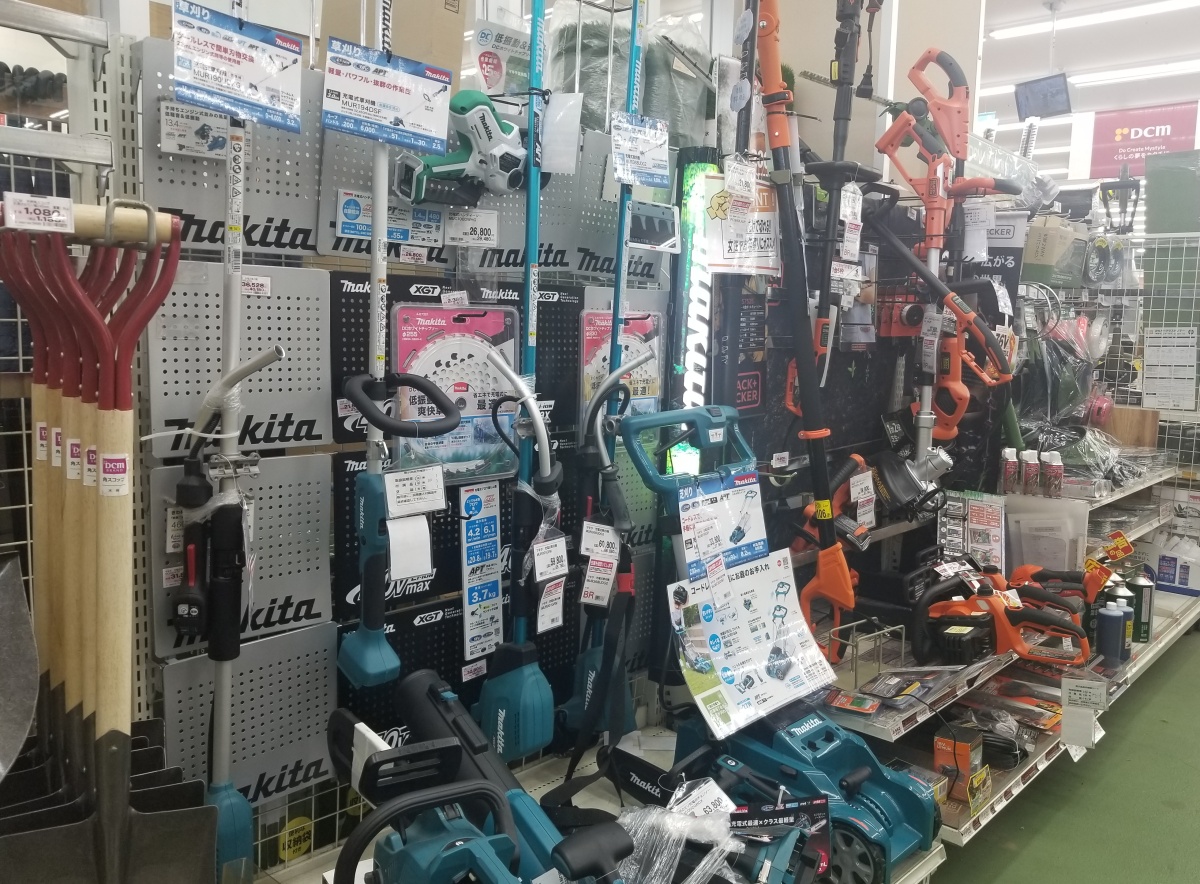
DCM is for both hobbyists and serious urban farmers.
DCM is a holding company that operates the brand DCM and D2 big box stores, as well as the Hodaka specialty tool. DCM and D2 are the places to go if you want to turn your garden into something more. While they also have a wide variety of plants, including those that sell under 100 yen, they have many affordable options for making your garden your own farm adventure spot. It sells different types of partitions, fences and awnings, heavy duty gardening companions from reliable brands like Black and Decker and Makita, garden sets and outdoor gear from Coleman and many local Japanese manufacturers, at very low prices. Several options for flooring are available, too, like plastic, wooden, fake grass, stone, tile, ceramic, etc. DCM even has options for wooden planks and boards that are JAS-certified (which is durable!) or non-JAS certified (which is 50 percent cheaper!).
Part II: For Cheap Home Improvement and Decorative Flower Arrangement Ideas
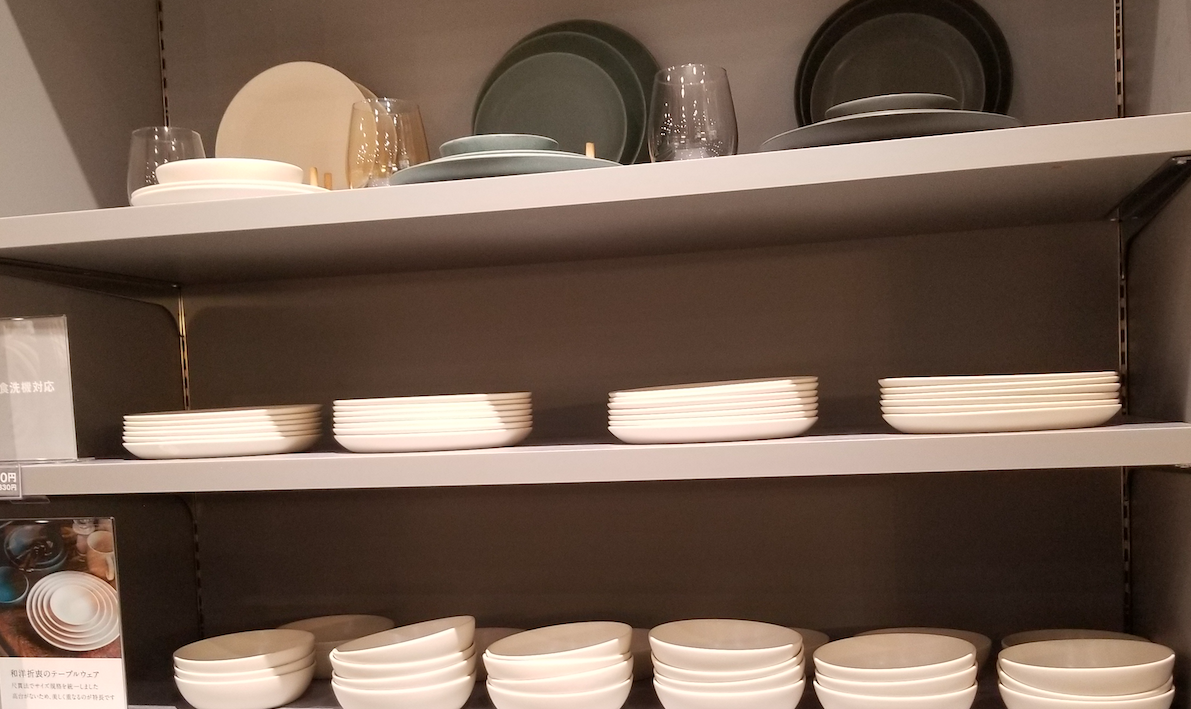
Standard Products is Daiso 2.0, with products that could compete with Zara Home or Franc Franc.
Typically, at a local flower store, a nice flower arrangement will cost the same as the price for a nice, casual dinner in Tokyo. But if giving pretty presents are your thing, you can buy them cheap, from the following quality 100-yen shops.
Seria: Home for Tasteful 100-yen Goods
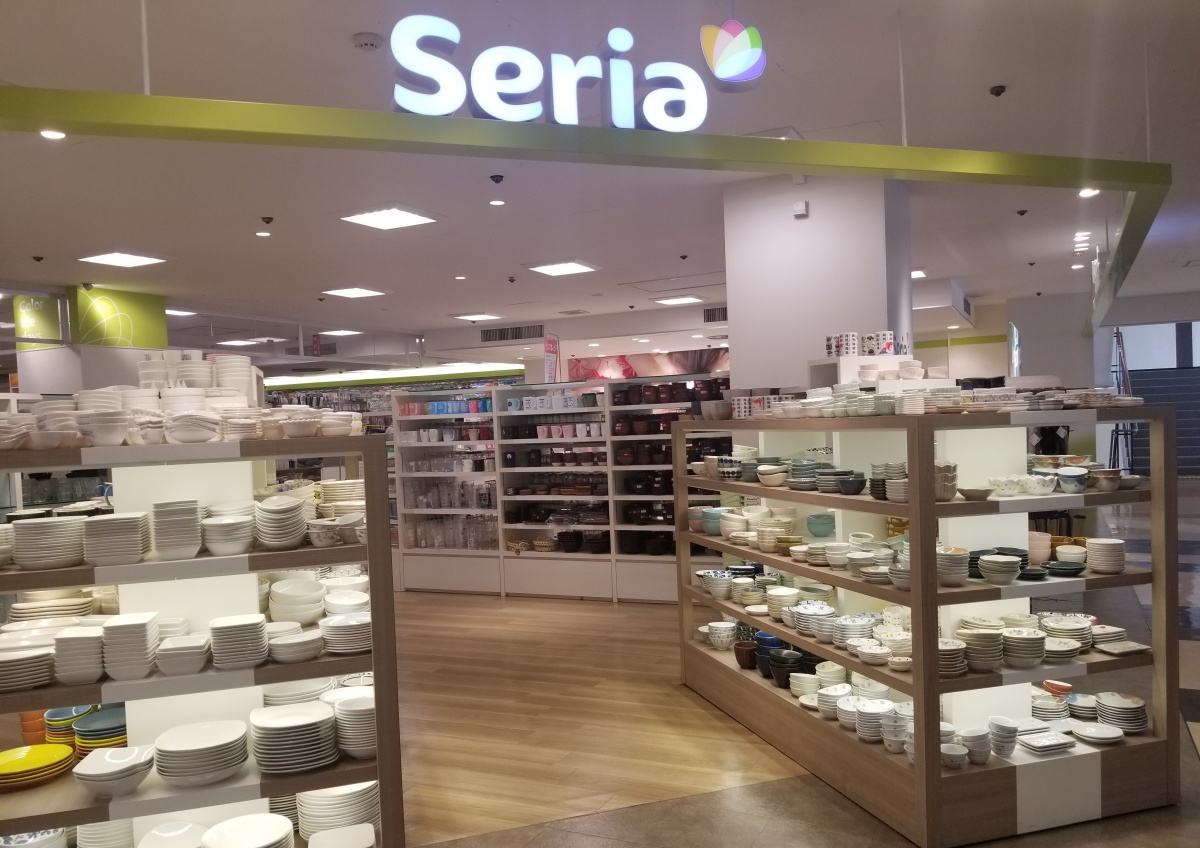
Some Seria branches have impressive baking and kitchen line perfect for DIY.
With almost 2000 stores all over Japan, Seria is the classier competition of Daiso, the ubiquitous ¥100 shop. While multi-level Daiso branches have it all, compact branches of Seria do have the usual things you need for sprucing-up your home. There are more “Made in Japan” products in these stores, including mason jars, plastic bottles, and bento canisters, which could be safer solutions (no BPA or lead contamination!) for decantering your pasta and grains, or organizing your pantry. They also have an extensive collection of baking items like pretty cupcake liners, and unique baking DIY ingredients like houjicha powder, purple potato powder, Earl Gray tea powder, and colored food powder.
Standard Products: Affordable Options for Your #HouseGoals
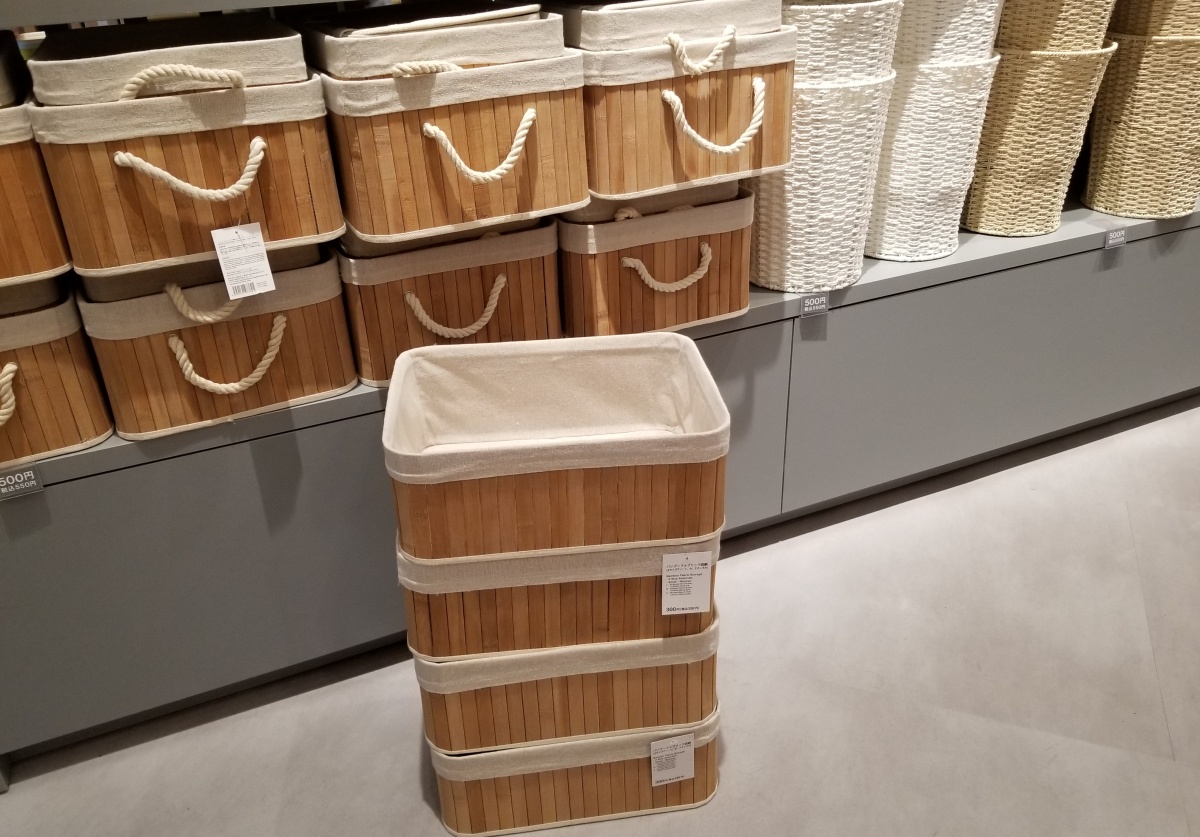
Standard Products can rival upscale interior goods shops in Tokyo.
Standard Products is Daiso Group's answer to the demand for affordable stuff (300-1000 yen price points) that could complete everyone's #housegoals and make those Instagrammable interior renovations happen. The best items are those from the “Made in Japan” fragrance line (room scents, aroma oil, candles, scented smoke chips), the classy-looking tableware that could pass as those from Zara Home, and those rattan bins and pillows that are way cheaper than IKEA.
Royal Home Center: All-affordable Options for Urban Farming
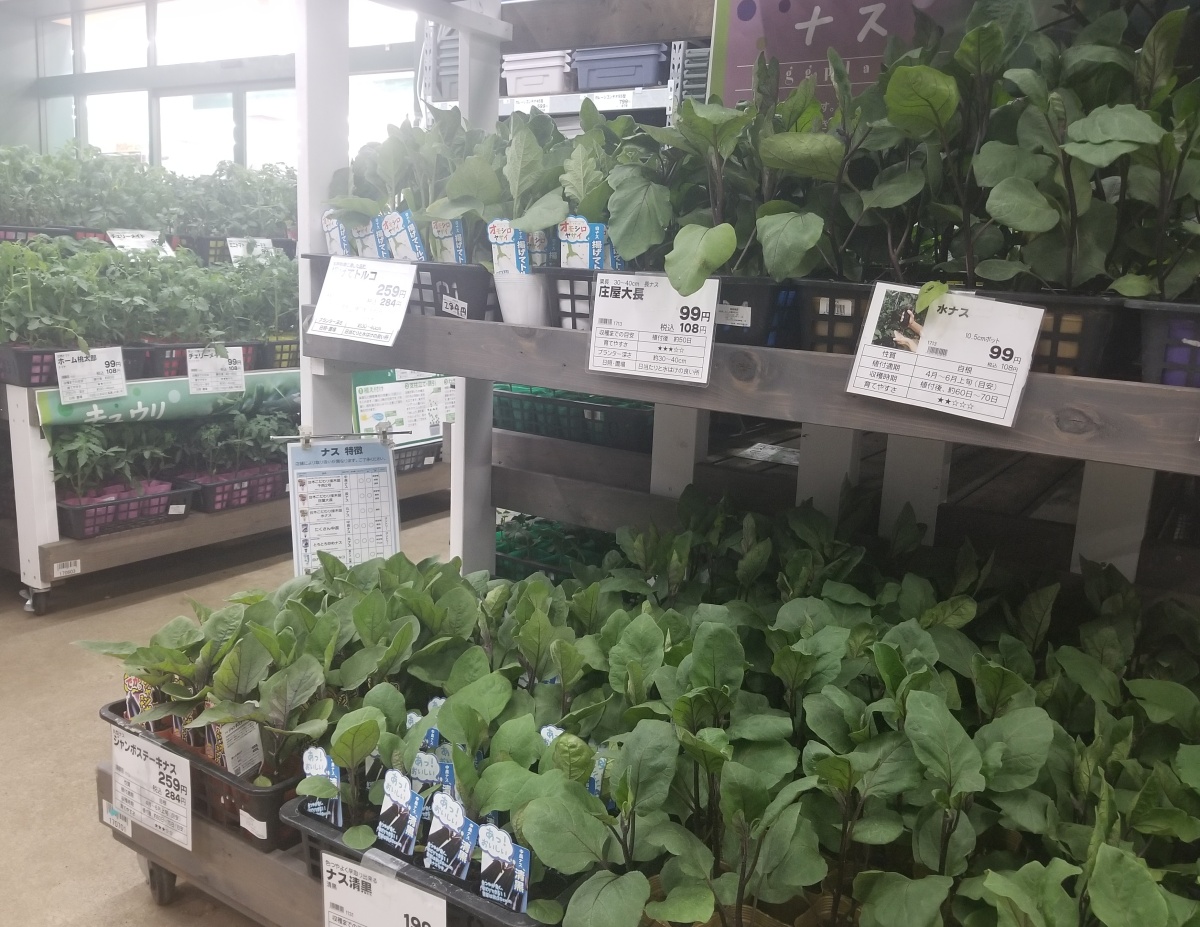
Eggplants for 99 yen (less than $1!) are good for a self-sufficient, sustainable lifestyle
Royal Home Center, which has over 60 shops all over central Japan, is a grown-up's candy store—with everything from home essentials to DIY materials, to outdoor setup furnishings, to lush and healthy plants that sell really cheap. Herbs and fruit-bearing plants abound in this shop, too! My personal collection of plants from this shop have already yielded fresh shiso peppers, bell peppers, eggplants, and cucumbers.
Part III: For DIY Artsy Pieces and More
If you really like working with your hands, there are a few shops in Tokyo that could be your Disneyland. Smaller and more quaint than the giant home centers, these shops curate handpicked DIY artsy home finds and materials like special tile options, unique drawer knobs, etc. They offer workshops, too!
Kamakura Naya Vintage and Recycle Shop: A Stylish and Sustainable Source
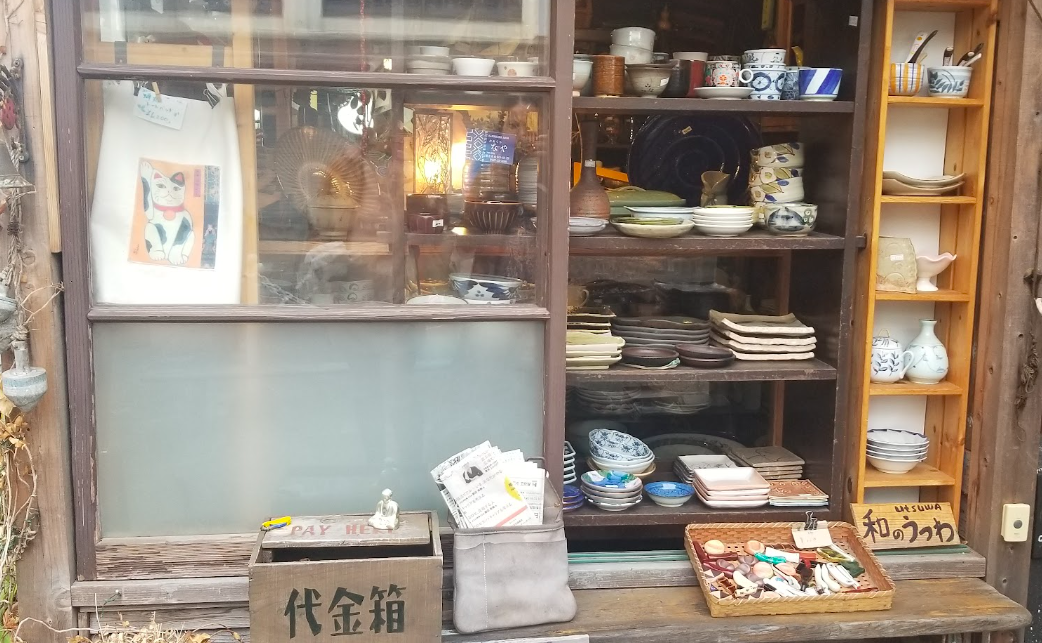
No sales staff. Choose, pay, then wrap your own purchases.
Located in Kamakura, the ancient city near Tokyo, Kamakura Naya Vintage and Recycle Shop is a personal favorite because of its one-of-a-kind pieces and honesty payment system—no store clerk, just a payment box. While many shops lining the street going to the famous Hasedera Temple are filled with artsy pieces—including a DIY music box shop—there's something more special about second-hands being given a second chance.
D' Paradise: Handpicked Accents and Woodworking Nirvana
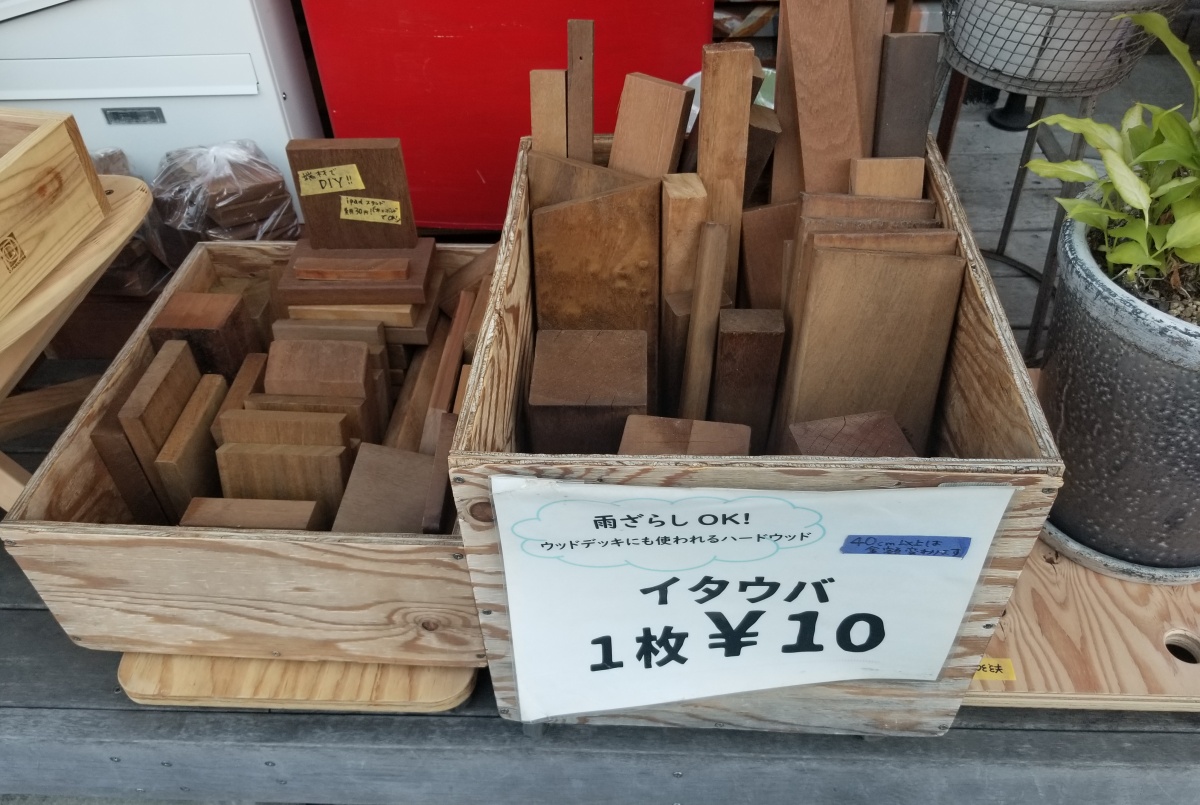
Wood waste does not exist in D'Paradise.
D' Paradise is a small shop in Chigasaki, a beach town on the coast south of Tokyo. It has unique pieces like tiles from Mexico, and scrap lumber, which sell for as low as 30 YEN per bag! They are perfect for DIY, adding more character to one's home. Paradise has a workshop in a different location, ideal for those who want to take their woodworking projects seriously.
Saideigama: Try Traditional Techniques
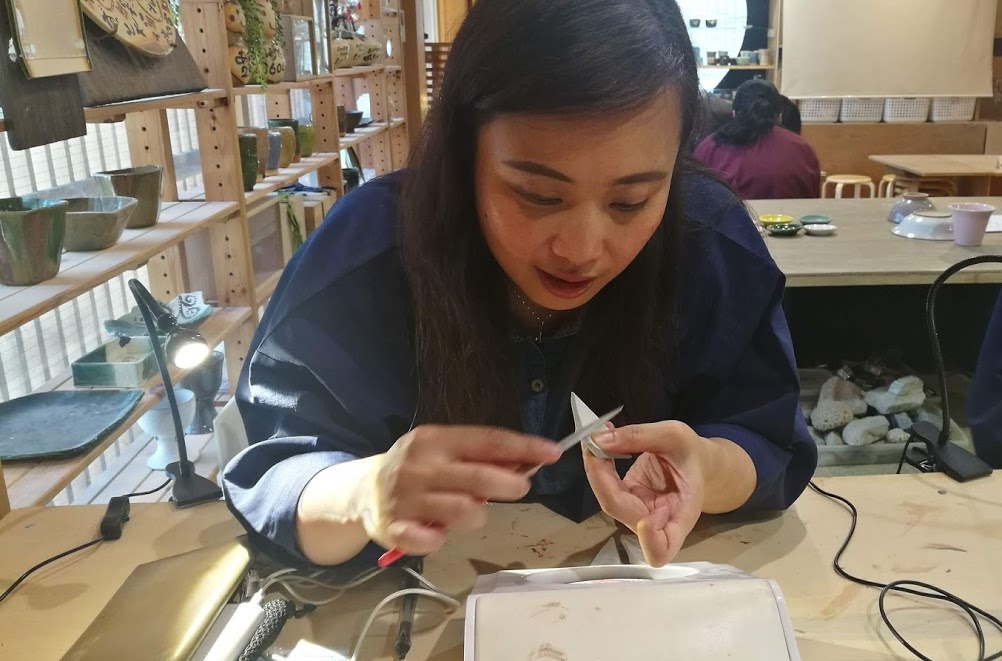
Doing "kintsugi," DIY in true Japanese fashion.
Last but not least, Saideigama is where you should go if you want make your own pottery to showcase the plants you've been growing. You can also learn to restore broken porcelain pieces through the Japanese technique called kintsugi right here in central Harajuku-Omotesando. Although the experience is not outright cheap, it is the most reasonable among its contemporaries; 10,000 yen for a four-session step-by-step workshop. Other workshops, especially those advertised by travel companies, easily charge 30,000 yen for a two-hour session. If you want to get your hands busy, enroll in one of their weekly lessons, or a crash course which takes half a day.


